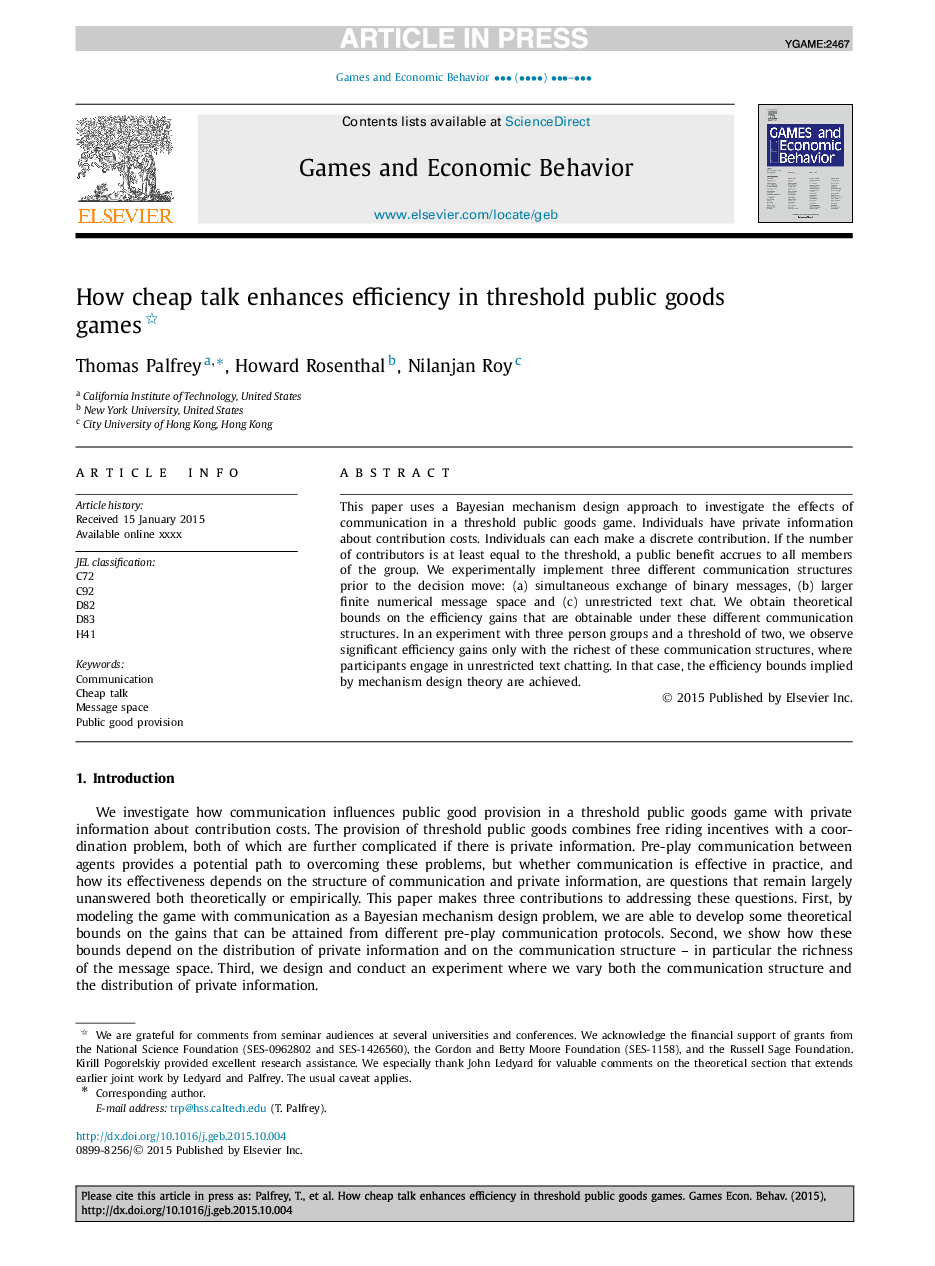| Article ID | Journal | Published Year | Pages | File Type |
|---|---|---|---|---|
| 5071430 | Games and Economic Behavior | 2017 | 26 Pages |
Abstract
This paper uses a Bayesian mechanism design approach to investigate the effects of communication in a threshold public goods game. Individuals have private information about contribution costs. Individuals can each make a discrete contribution. If the number of contributors is at least equal to the threshold, a public benefit accrues to all members of the group. We experimentally implement three different communication structures prior to the decision move: (a) simultaneous exchange of binary messages, (b) larger finite numerical message space and (c) unrestricted text chat. We obtain theoretical bounds on the efficiency gains that are obtainable under these different communication structures. In an experiment with three person groups and a threshold of two, we observe significant efficiency gains only with the richest of these communication structures, where participants engage in unrestricted text chatting. In that case, the efficiency bounds implied by mechanism design theory are achieved.
Related Topics
Social Sciences and Humanities
Economics, Econometrics and Finance
Economics and Econometrics
Authors
Thomas Palfrey, Howard Rosenthal, Nilanjan Roy,
